Coronavirus testing is daunting if you can't get time off to quarantine. These folks have solutions
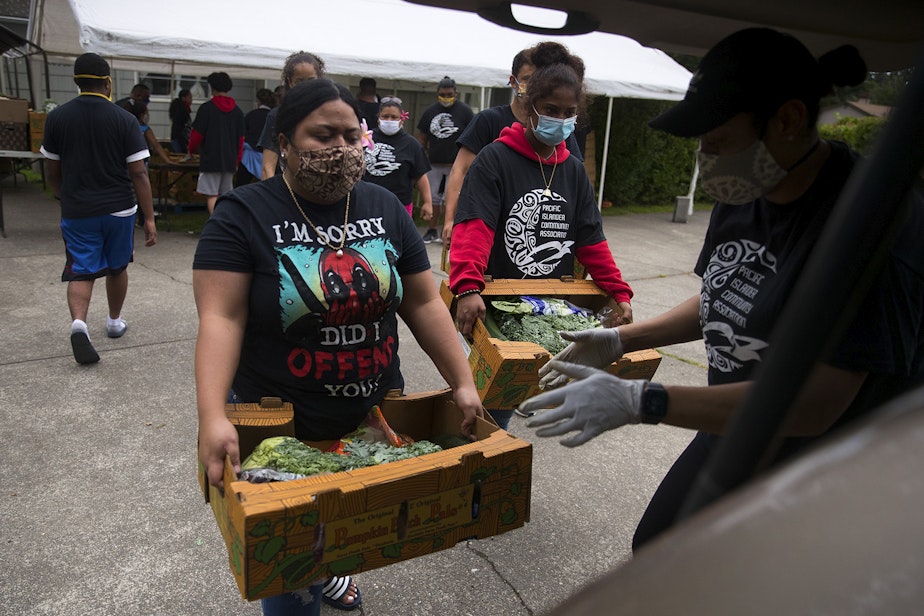
For some people in the Seattle area, getting tested for coronavirus is daunting – and not because of the lines.
“People are scared to get tested in case they have to quarantine, and they can’t take the time off to quarantine,” said Lika Smith, program administrator with the Pacific Islander Health Board of Washington.
The Pacific Islander community has a lot of essential workers, in fields from healthcare to manufacturing, who aren’t able to stay home because they may be the only breadwinner for a household that includes multiple generations, she said.
“If people were able to feed their families and pay their rent, and not have to worry about doing a test and being positive, I think that would allow our people to go get tested more,” Smith said.
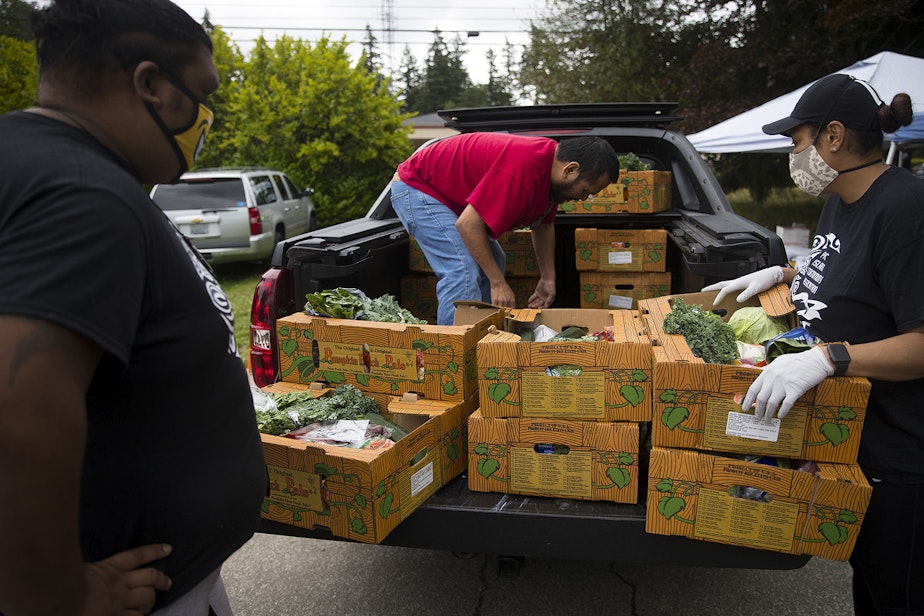
Communities of color have been hard-hit by Covid-19, casting a bright light on inequities in American society. These communities say public health officials must do more to help them fight Covid-19. It’s not just testing and masks that are needed to slow the spread of the virus, but tangible support to individuals and families that will allow them to stay home when they’re sick or exposed to Covid-19.
They say funding is key – not just to help translate and transmit public health messages in their own languages – but to help people economically during the pandemic and support grassroots efforts filling the gaps.
“Information is great, and getting it out to communities is definitely important,” said Toka Valu, a community outreach coordinator for the Pacific Islander Health Board of Washington. “At what point do we move past just simply pumping out information to some actionable commitments?”
Valu and others at the health board predicted early on that the pandemic would hit Pacific Islanders especially hard.
“It is part of our culture that we care for our elderly,” Valu said. “A lot of our folks are renting, and so the living quarters are much more squeezed, in a sense, so there's ripe opportunity for a pandemic of this level to impact our communities.”
In Washington state, Covid case rates among Black and American Indian or Alaska Native people are three times higher than among whites. For Pacific Islanders and Hispanic/Latinx people, they’re nine times higher than among whites.
The disparities are narrower in King County, but no less glaring. Compared to whites, case rates are close to twice as high for American Indian or Alaska Native people, about three times higher for Blacks, over five times higher for Hispanic/Latinx people, and over six times higher for Native Hawaiian and Pacific Islanders.
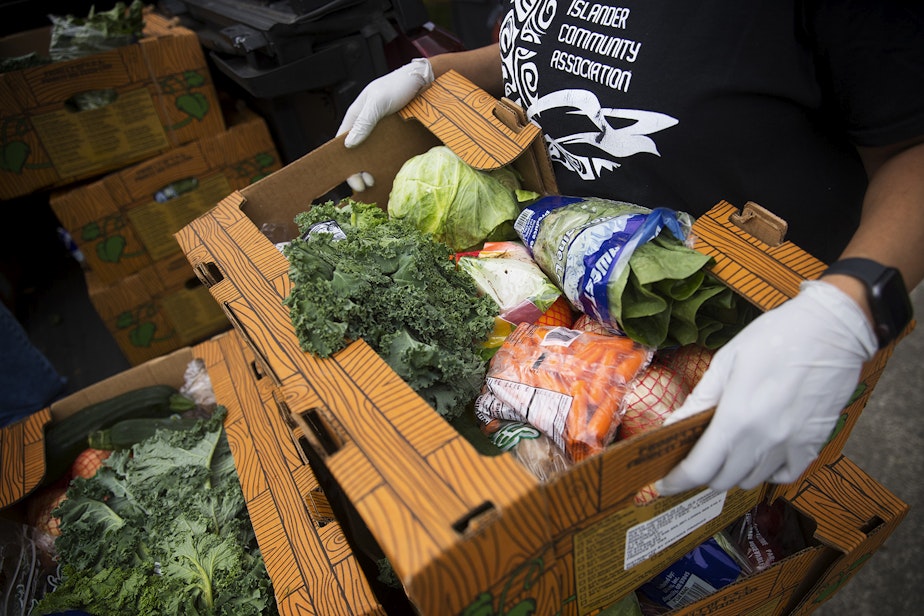
The numbers are the result of how society has failed the communities in a variety of ways for a long time – from the economy, low wages and benefits, to housing and health care.
Community groups from across hard-hit communities of color have stepped up to meet needs that government agencies have been slow to address, if at all.
“The gap that we've been filling is making sure that we're helping pay people's rent if they do have to quarantine, or if they got laid off in the beginning,” Mia McFarland, an outreach coordinator for the Pacific Islander Health Board. “We've been doing grocery delivery, because the county hasn't really stepped up to fix that.”
On a recent Thursday in a neighborhood in Kent, volunteer Amelia Makasini held a hand-written sign and called out to passing cars.
Sponsored
“Free food! Free food! Free food, guys!”
She was directing them into the driveway of a house, where boxes of produce, dairy and meat filled tables and pallets on the ground.
Music from YouTube thumped in the background as volunteers in masks heaved the boxes into a line of waiting cars.
Pacific Islanders have the highest rate of unemployment in King County, followed by American Indian and Alaska Natives and Black people. Since the pandemic, unemployment for Pacific Islanders has doubled, Pacific Islander Community Association of Washington executive director Joseph Seia said.
“Outside of not being able to pay rent or utilities, food is the second biggest need,” he said.
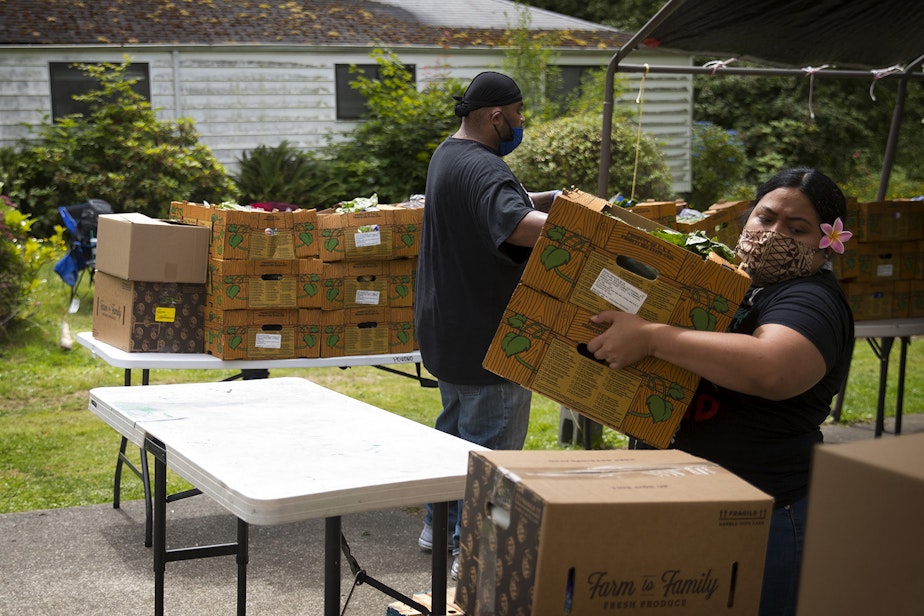
The association started this weekly food distribution event in June. Volunteers also deliver boxes to people who have to stay home because they tested positive, or were in close contact with someone who did. Pacific Islanders are responding to the crisis, organizing themselves and engaging with local health departments, Seia said.
In Redmond, Centro Cultural Mexicano is distributing money from grants directly to people who need help paying for food, utilities and rent.
The organization is finding, when community or governmental help is available, that too often people don’t know how to access it or face a confusing process, said director Angie Hinojos Yusuf.
“When we convene with other BIPOC (Black, Indigenous, and people of color) leaders, we find that we all share the same priority, which is to advocate for more investment in BIPOC organizations and communities,” Hinojos Yusuf said.
The leaders of Centro Cultural Mexicano are concerned how community members who test positive will be able to immediately get the help they need, as many are in debt or living paycheck to paycheck already.
Sponsored
“If we're asking our communities to step up and get tested or to stay home, even though that may mean the only income that's coming into the house, then I think we also have a responsibility as a society to support our communities that are hurting,” Hinojos Yusuf said.
The Community Health Worker Coalition for Migrants and Refugees is another organization distributing money to families who need it because of the pandemic.
Ninety percent of the people they help are Latinos and many are undocumented or DACA recipients, executive director Dr. Ileana Ponce Gonzalez said.
Many lost jobs because of the pandemic, such as preschool teachers and dry cleaners. Others worked as independent contractors cleaning houses, doing landscaping or painting and lost business. But, they don’t qualify for unemployment benefits because they’re undocumented.
Earlier this year the coalition got a $15,000 grant from King County to distribute $500 to 28 families and educate them on how to protect themselves from the coronavirus, she said. But over 70 families applied, and every one of them was deserving,
“For me it was very hard, and I almost cried when I saw the need in the community,” Ponce Gonzalez said.
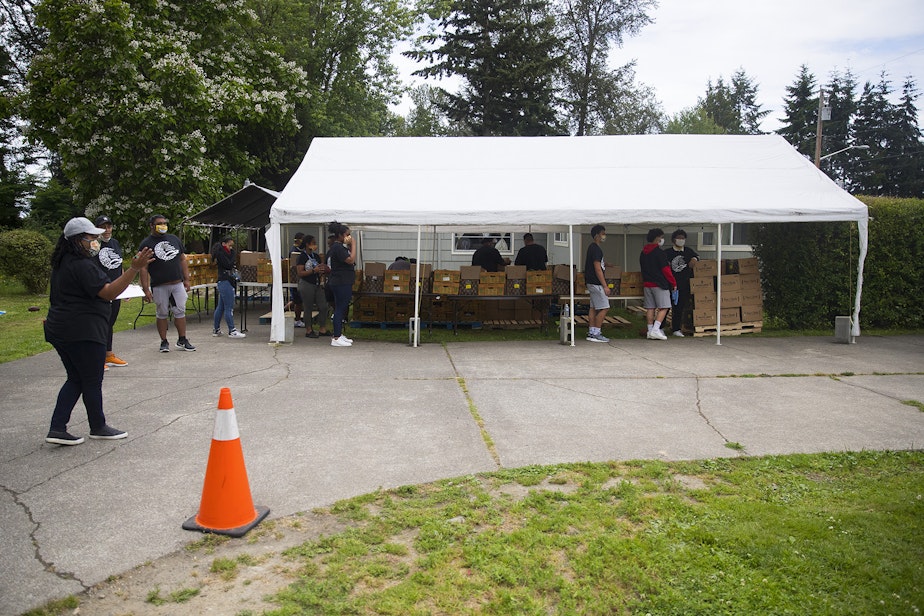
Since then, the group has been able to help the remainder of the applicants, along with other families, through grants from private foundations, including the Seattle Foundation and Perigee Fund.
“I apply to all the grants I see like crazy,” Ponce Gonzalez said.
Community organizations can also help expand testing, they say.
Testing needs to be available at more places where African Americans frequent and feel comfortable, said Mary Diggs-Hobson, the outgoing executive director of African Americans Reach and Teach Health Ministry. Think about it like a flu vaccine, she said.
“You can go to a local pharmacy now, you can go to Costco, you can go to your down-the-street pharmacy, where people go pick up their meds and they can get a flu vaccine,” Diggs-Hobson said. “That has been effective.”
Or, embedding testing sites at grassroots organizations that specifically serve African Americans.
The pandemic shows how society systemically fails black communities, said Linda Chastine, HIV Program Coordinator with African Americans Reach and Teach Health Ministry.
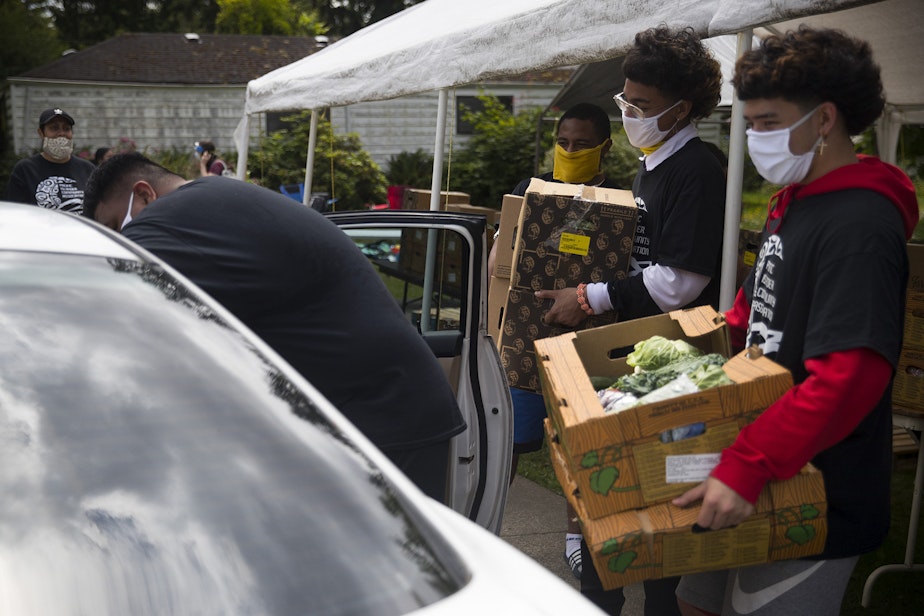
“Covid is exposing the instability of our current way of doing things on multiple levels. And how that is negatively impacting Black people, and how it's going to inevitably impact the entire community at large and the economy," she said.
On the flip side, working toward racial equity could help us all get a hold on Covid.

